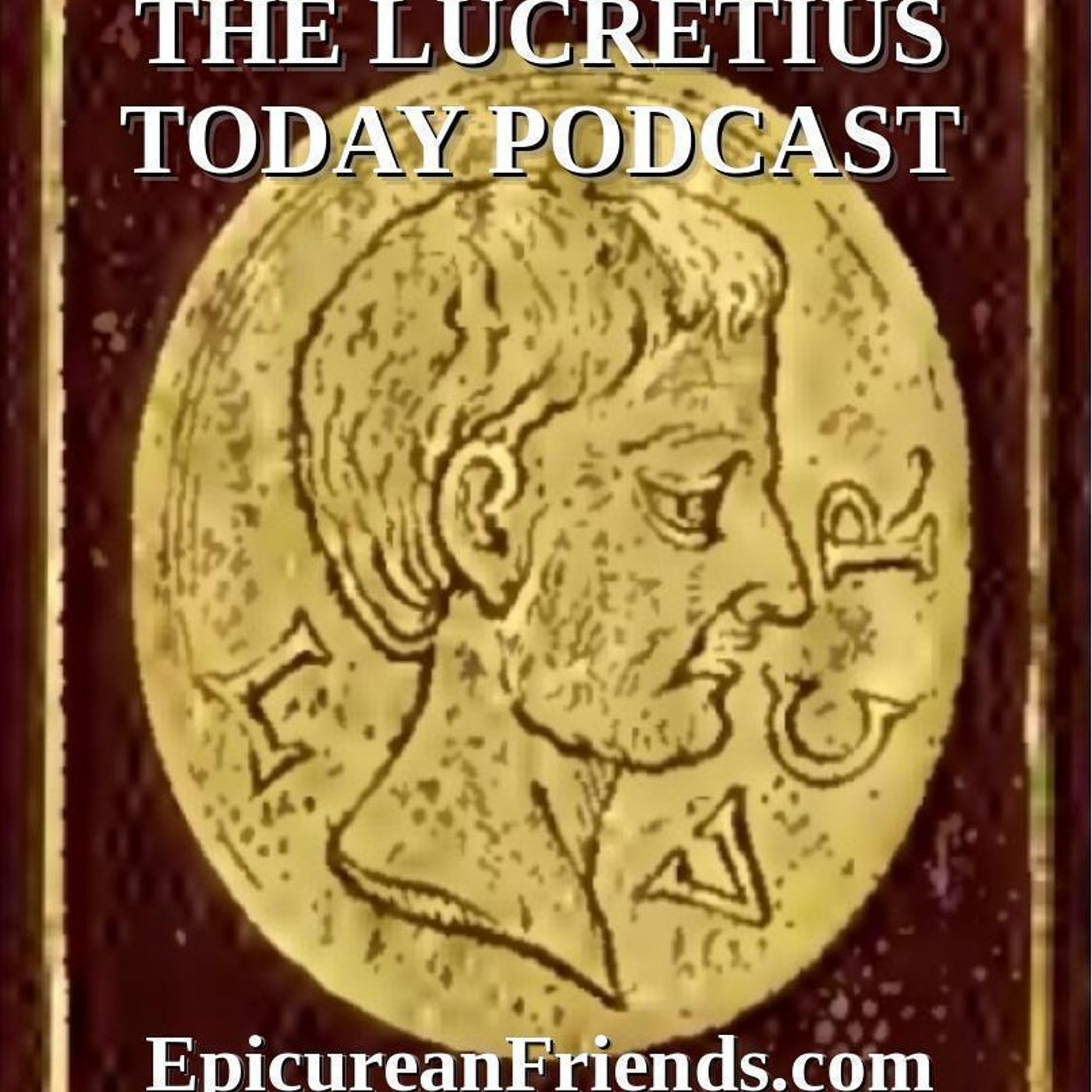Episode Summary
Welcome to Episode 216 of Lucretius Today. This is a podcast dedicated to the poet Lucretius, who wrote "On The Nature of Things," the most complete presentation of Epicurean philosophy left to us from the ancient world. Each week we walk you through the Epicurean texts, and we discuss how Epicurean philosophy can apply to you today. If you find the Epicurean worldview attractive, we invite you to join us in the study of Epicurus at EpicureanFriends.com, where you will find a discussion thread for each of our podcast episodes and many other topics.This week we continue our discussion of Book Two of Cicero's On Ends, which is largely devoted Cicero's attack on Epicurean Philosophy. Going through this book gives us the opportunity to review those attacks, take them apart, and respond to them as an ancient Epicurean might have done, and much more fully than Cicero allowed Torquatus, his Epicurean spokesman, to do.Follow along with us here: Cicero's On Ends - Complete Reid Edition. Check any typos or other questions against the original PDF which can be found here.This week pick up after devoting an episode to Happiness to where the discussion continued in Book 2 at the very end of Section XXVII, continuing into Section XXVIII:REID EDITIONXXVII. ... On bodily pleasure (I will add mental, if you like, on the understanding that it also springs, as you believe, from the body) depends the life of happiness. Well, who can guarantee the wise man that this pleasure will be permanent? For the circumstances that give rise to pleasures are not within the control of the wise man, since your happiness is not dependent on wisdom herself, but on the objects which wisdom procures with a view to pleasure. Now all such objects are external to us, and what is external is in the power of chance. Thus fortune becomes lady paramount over happiness, though Epicurus says she to a small extent only crosses the path of the wise man.XXVIII. Come, you will say to me, these are small matters. The wise man is enriched by nature herself, whose wealth, as Epicurus has taught us, is easily procured. His statements are good, and I do not attack them, but they are inconsistent with each other. He declares that no less pleasure is derived from the poorest sustenance, or rather from the most despicable kinds of food and dink, than from the most recherché dishes of the banquet. If he declared that it made no difference to happiness what kind of food he lived on, I should yield him the point and even applaud him ; for he would be asserting the strict truth, and I listen when Socrates, who holds pleasure in no esteem, affirms that hunger is the proper seasoning for food, and thirst for drink. But to one who, judging of everything by pleasure, lives like Gallonius, but talks like the old Piso Frugi, I do not listen, nor do I believe that he says what he thinks. He announced that nature’s wealth is easily procurable, because nature is satisfied with little. This would be true, if you did not value pleasure so highly. The pleasure, he says, that is obtained from the cheapest things is not inferior to that which is got from the most costly. To say this is to be destitute not merely of intelligence, but even of a palate. Truly those who disregard pleasure itself are free to say that they do not prefer a sturgeon ‘to a sprat; but he who places his supreme good in pleasure must judge of everything by sense and not by reason, and must say that those things are best which are most tasty. But let that pass; let us suppose he acquires the intensest pleasures not merely at small cost, but at no cost at all, so far as I am concerned; let the pleasure given by the cress which the Persians used to
